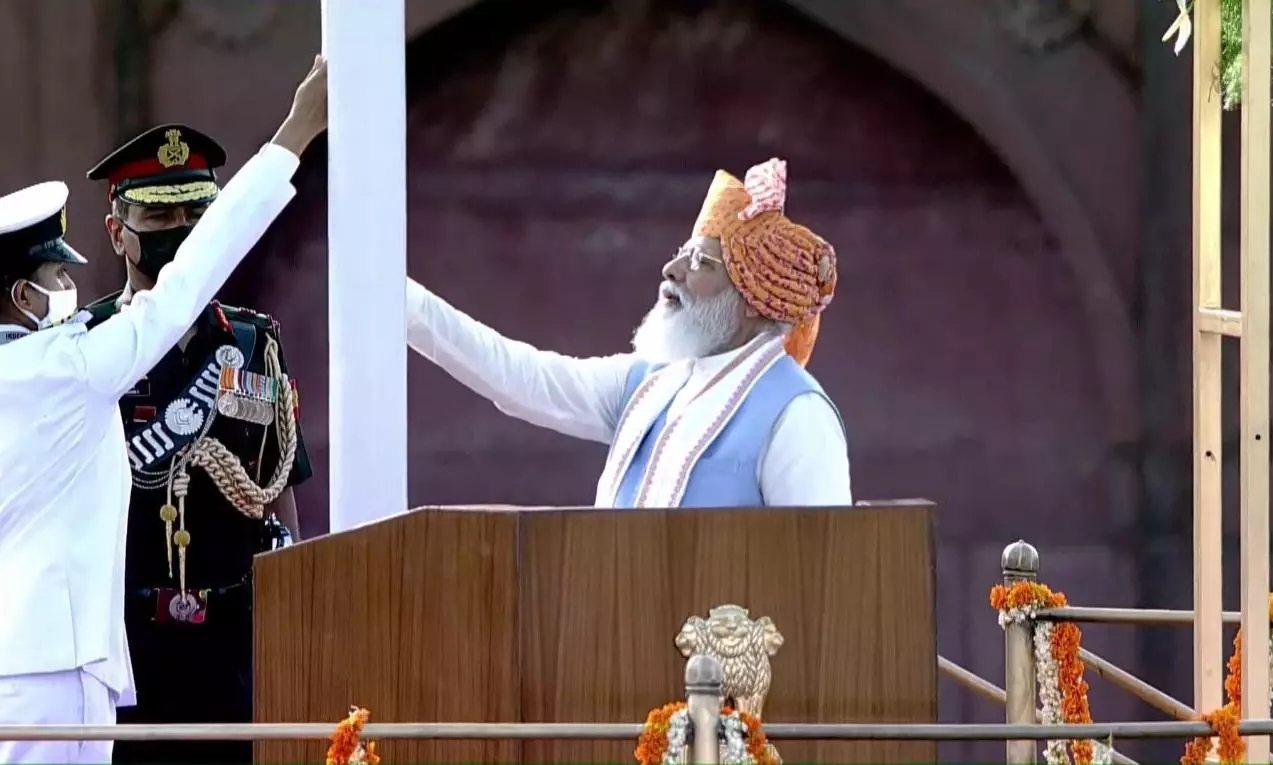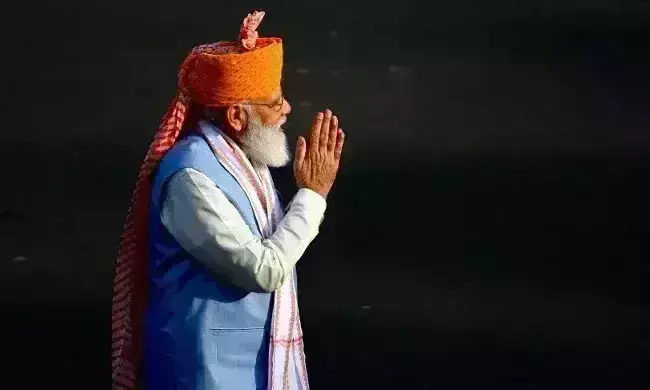
Red Fort address: gap between word and deed
text_fieldsIndependence Day speeches now carry more symbolism than content. Even earlier, prime ministers' I-Day addresses were catalogues of claims and optimistic thoughts. Still prime ministers in the past used to take care to reflect the hopes and aspirations of the people and include concerns as much as achievements. Narendra Modi's speeches have however been noticeably more and more propagandist every year, and for that very reason, marked by an overdose of hyperbole, and silence on themes that worry people's minds. This credibility deficit affected this year's I-Day speech considerably. While saying that the country fought the Covid pandemic, he had nothing to say about the slow pace of vaccination or the woes resulting from lockdown. He mentioned the proud achievements of Indian sportsmen at the Olympics, but glossed over the budget allocation for sports which suffered a big cut this year. He said that the co-operative movement would be strengthened, ignoring the uncertainties resulting from erosion of States' rights in the subject of co-operatives. Even as he talked about schemes to install oxygen plants in hospitals, he did not remember those who had died of oxygen shortage. Plans to aid the farmer were referred to, but there was not even a hint about the farmer agitation. Talk about inclusiveness was not lacking, but the orgy of communalism was missing.
Modi's observation that laws were not meant to cause problems for the commercial sector and in day-to-day life, was in fact a good example of the gap between precept and practice of the government. For, while explaining the desirable position, he said that obsolete laws that make business difficult should change. But when comments were made by the Tata goup that new rules in e-commerce will cause problems, minister Piyush Goyal hit out against the group. Another example of contradiction was the statement, "the goal of 'Amrit Kaal' is to build an India where the government does not interfere unnecessarily in the lives of citizens" which is a right democratic position. But now, the burning issue of the Pegasus controversy has brought out a case of snooping and the most invasive interference in the private lives of people that India has ever seen. And Narendra Modi is the head of a government that is the least prepared to discuss this issue. The government even decides what one shout eat!
The prime minister who takes pride in Indian democracy, is at the receiving end of criticism about the serious injury caused to parliamentary democracy. In a democracy, the executive does not wield absolute power, and is subject to scrutiny and correction by the judiciary and the legislature. But now things are moving in the direction of bypassing this principle of division of power and of concentrating everything in the executive. Modi is not ready to honour the parliament; nor does he lend ear to the voice of people's representatives. In the just concluded parliament session, the duration he attended was a mere six and a quarter minutes. Not only are laws pushed through without required review, but such review has become the privilege of a few individuals. Laws are notified through Twitter without the knowledge of ministers or ministries. It is through such a notification that the name of Rajiv Gandhi Khel Ratna Award was renamed after Dhyan Chand, and it was claimed to be in response to 'popular demand'. The wishes of the people are to be known through the parliament in a transparent manner. Not only the decision to observe a 'Partition Horrors Remembrance Day' , but even the way it was brought in should cause worry. The reason given by Modi before declaring in the I-Day address that girls would be given admission in Sainik Schools, is "I used to get lakhs of messages from our daughters that they want to study in the Sainik Schools". Even good decisions are not to be taken in a non-transparent manner. The remarks by Chief Justice of India NV Ramana about laws being made without informed discussion in the parliament are quite pertinent. In his Independence Day speech before the legal community, Justice Ramana recalled that in the past legislators "would discuss and debate on Bills in both the Houses of parliament and in various state assemblies, which helped the courts to comprehend better the intent and object of the laws". There is no doubt that haphazard laws also will harm freedom.


























